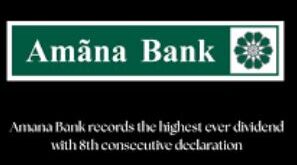 In what the New York Times declared as a “dark day for the rule of law” on December 11, 2012, HSBC, the world’s second largest bank, failed to be indicted for extensive criminal activities in laundering money to and from regimes under sanctions, Mexican drug cartels, and terrorist organizations (including al-Qaeda). While admitting culpability, and with guilt assured, state and federal authorities in the United States decided not to indict the bank “over concerns that criminal charges could jeopardize one of the world’s largest banks and ultimately destabilize the global financial system.” Instead, HSBC agreed to pay a $1.92 billion settlement.
In what the New York Times declared as a “dark day for the rule of law” on December 11, 2012, HSBC, the world’s second largest bank, failed to be indicted for extensive criminal activities in laundering money to and from regimes under sanctions, Mexican drug cartels, and terrorist organizations (including al-Qaeda). While admitting culpability, and with guilt assured, state and federal authorities in the United States decided not to indict the bank “over concerns that criminal charges could jeopardize one of the world’s largest banks and ultimately destabilize the global financial system.” Instead, HSBC agreed to pay a $1.92 billion settlement.
The fear was that an indictment would be a “death sentence” for HSBC. The U.S. Justice Department, which was prosecuting the case, was told by the U.S. Treasury Department and the Federal Reserve that taking such an “aggressive stance” against HSBC could have negative effects upon the economy. Instead, the bank was to forfeit $1.2 billion and pay $700 million in fines on top of that for violating the Bank Secrecy Act and the Trading with the Enemy Act. In a statement, HSBC’s CEO stated, “We accept responsibility for our past mistakes… We are committed to protecting the integrity of the global financial system. To this end, we will continue to work closely with governments and regulators around the world.” With more than $7 billion in Mexican drug cartel money laundered through HSBC alone, the fine amounts to a slap on the wrist, no more than a cost-benefit analysis of doing business: if the ‘cost’ of laundering billions in drug money is less than the ‘benefit,’ the policy will continue.
As part of the settlement, not one banker at HSBC was to be charged in the case. The New York Times acknowledged that, “the government has bought into the notion that too big to fail is too big to jail.” HSBC joins a list of some of the world’s other largest banks in paying fines for criminal activities, including Credit Suisse, Lloyds, ABN Amro and ING, among others. The U.S. Assistant Attorney General Lanny A. Breuer referred to the settlement as an example of HSBC “being held accountable for stunning failures of oversight.” Lanny Breuer, who heads the Justice Department’s criminal division, which was responsible for prosecuting the case against HSBC, was previously a partner at a law firm (along with the U.S. Attorney General Eric Holder) where they represented a number of major banks and other conglomerates in cases dealing with foreclosure fraud. While Breuer and Holder were partners at Covington & Burling, the firm represented notable clients such as Bank of America, Citigroup, JP Morgan Chase and Wells Fargo, among others. It seems that at the Justice Department, they continue to have the same job: protecting the major banks from being persecuted for criminal behaviour.
With a great deal of focus on the $1.9 billion in fines being paid out by HSBC, little mention was made of the fact that HSBC had roughly $2.5 trillion in assets, and earned $22 billion in profits in 2011. But not to worry, HSBC’s executive said that they “accept responsibility for our past mistakes,” and added: “We have said we are profoundly sorry for them,and we do so again.” So not only did the executives of the world’s second largest bank apologize for laundering billions in drug money (along with other crimes), but they apologized… again. Thus, they pay a comparably small fine and face no criminal charges. I wonder if a crack dealer from a ghetto in the United States could avoid criminal prosecution if he were to apologize not once, but twice. Actually, we don’t have to wonder. In May of 2012, as HSBC executives were testifying before the U.S. Senate in Washington D.C., admitting their role in drug money laundering, a poor black man was convicted of peddling 5.5 grams of crack cocaine just across the river from the U.S. Capitol building, and he was given 10 years in prison.
Back in August the bank stated that they had put aside $700 million to pay fines for illegal activities, which conveniently was the exact amount they were fined by the U.S. Justice Department (not including the forfeiture of profits). Lanny Breuer declared the settlement to be “a very just, very real and very powerful result.” Indeed, one could agree that the results are “powerful” and “very real,” in that they provide a legal state-sanctioned decision that big banks will not be prosecuted for their vast criminal activities, precisely because they are big banks. The “very real” result of this is that we can guarantee that such criminal behaviour will continue, since the banks will continue to be protected by the state. With news of the settlement, HSBC’s market share price rose by 2.8%, a clear sign that “financial markets” also reward criminal behaviour and the “pervasively polluted” culture at HSBC (in the words of the U.S. Senate report).
Jack Blum, a Washington attorney and former special counsel for the Senate Foreign Relations Committee who specializes in money laundering and financial crimes stated that, “If these people aren’t prosecuted, who will be?” He further asked: “What do you have to do to be prosecuted? They have crossed every bright line in bank compliance. When is there an offense that’s bad enough for a big bank to be prosecuted?” But the Justice Department’s Lanny Breuer explained that his department had to consider “the collateral consequences” of prosecutions: “If you prosecute one of the largest banks in the world, do you risk that people will lose their jobs, other financial institutions and other parties will leave the bank, and there will be some kind of event in the world economy?”
In other words, the U.S. Justice Department decided that big banks are above the law, because if they weren’t, there would be severe consequences for the financial system. And this is not just good news for HSBC, the “favourite” bank of Mexican drug cartels (according to Bloomberg), but it’s good news for all banks. After all, HSBC is not the only bank engaged in laundering drug money and other illegal activities. Back in 2010, Wachovia (now part of Wells Fargo) paid roughly $160 million in fines for laundering some $378.4 billion in drug money. Drug money has also been found to be laundered through other major financial institutions, including Bank of America, Banco Santander, Citigroup, and the banking branch of American Express. Nearly all of the world’s largest banks have been or are currently being investigated for other crimes, including rigging interest rates (in what’s known as the Libor scandal), and other forms of fraud. Among the banks being investigated for criminal activity by U.S. prosecutors are Barclays, Deutsche Bank, Citigroup, JP Morgan Chase, Royal Bank of Scotland, UBS, Bank of America, Bank of Tokyo Mitsubishi, Credit Suisse, Lloyds, Rabobank, Royal Bank of Canada, and Société Générale, among others. Regulators and investigators of the Libor scandal – “the biggest financial scandal ever” – report that the world’s largest banks engage in “organized fraud” and function like a “cartel” or “mafia.”
The pervasive criminality of this “international cartel” is so consistent that one commentator with the Guardian has referred to global banks as “the financial services wing of the drug cartels.” But indeed, where could be a better place for drug cartels to deposit their profits than with a financial cartel? And why would banks give up their pivotal role in the global drug trade? While the pharmaceutical drug industry records annual revenues in the hundreds of billions of dollars (which is nothing to ignore), the global trade in illicit drugs, according to the United Nations Office on Drugs and Crime, amounted to roughly 2.3-5.5% of global GDP, around $2.1 trillion (U.S.) in 2009. That same year, the same United Nations office reported that billions of dollars in drug money saved the major global banks during the financial crisis, as “the only liquid investment capital” pouring into banks. Roughly $325 billion in drug money was absorbed by the financial system in 2009. It is in the interest of banks to continue profiting off of the global drug trade, and now they have been given a full green light by the Obama administration to continue.
Welcome to the world of financial criminality, the “international cartel” of drug money banks and their political protectors. These banks not only launder billions in drug money, finance terrorists and commit massive fraud, but they create massive financial and economic crises, and then our governments give them trillions of dollars in bailouts, again rewarding them for creating crises and committing criminal acts. On top of that, we, the people, are handed the bill for the bailouts and have to pay for them through reduced standards of living by being punished into poverty through ‘austerity measures’ and have our labour, resources, and societies exploited through ‘structural reform’ policies. These criminal banks dominate the global economy, and dictate policies to national political oligarchies. Their greed, power, and parasitic nature knows no bounds.
The fact that the Justice Department refused to prosecute HSBC because of the effects it could have on the financial system should be a clear sign that the financial system does not function for the benefit of people and society as a whole, and thus, that it needs to be dramatically changed, cartels need to be destroyed, banks broken up, criminal behaviour punished (not rewarded), and that people should dictate the policies of society, not a small network of international criminal cartel banks.
But then, that would be rational, so naturally it’s not even up for discussion.
Andrew Gavin Marshall is an independent researcher and writer based in Montreal, Canada, with a focus on studying the ideas, institutions, and individuals of power and resistance across a wide spectrum of social, political, economic, and historical spheres. andrewgavinmarshall.com .
Post Disclaimer | Support Us
Support Us
The sailanmuslim.com web site entirely supported by individual donors and well wishers. If you regularly visit this site and wish to show your appreciation, or if you wish to see further development of sailanmuslim.com, please donate us
IMPORTANT : All content hosted on sailanmuslim.com is solely for non-commercial purposes and with the permission of original copyright holders. Any other use of the hosted content, such as for financial gain, requires express approval from the copyright owners.
 Sri lanka Muslims Web Portal Sri Lanka Muslims News Center
Sri lanka Muslims Web Portal Sri Lanka Muslims News Center
 Donate
Donate


